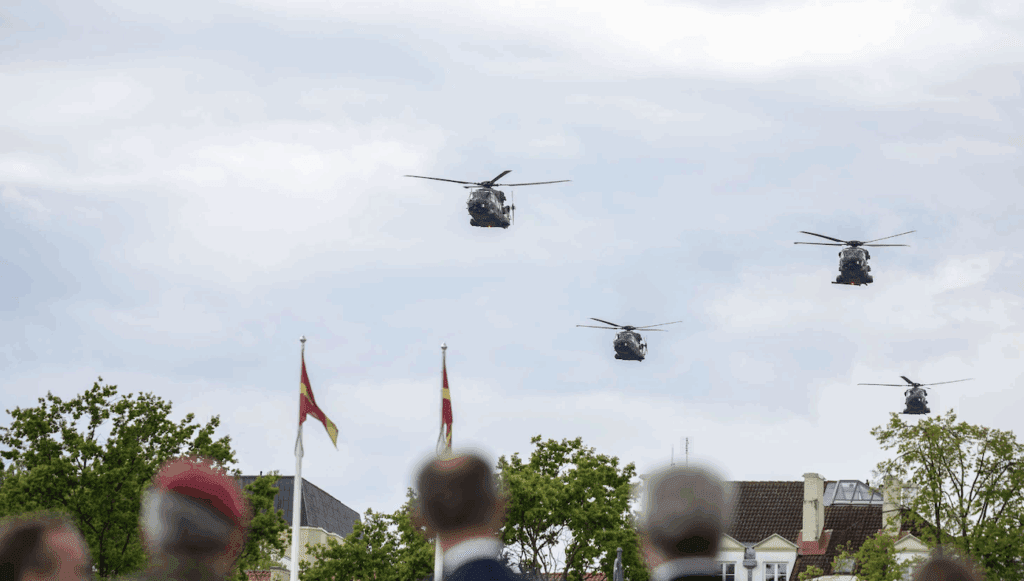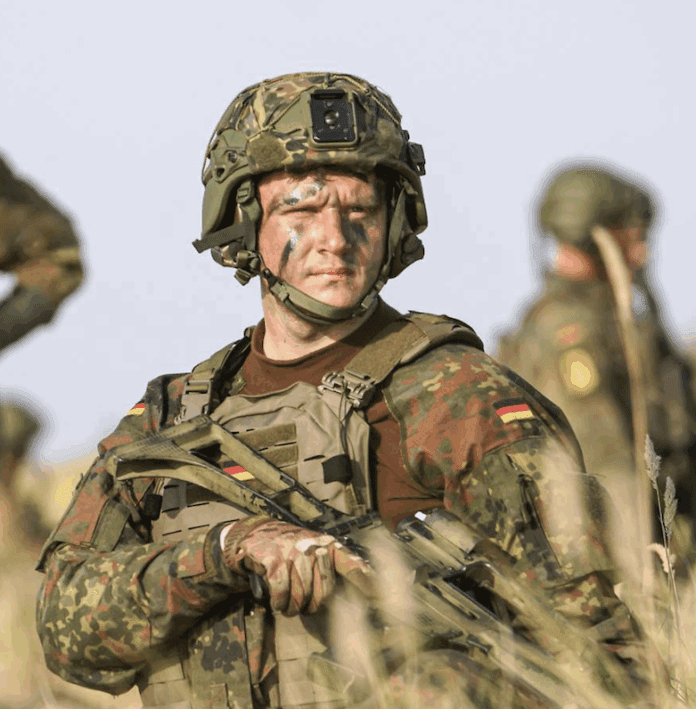by Marko Barišić: Germany has deployed a permanent armoured brigade to Lithuania in a bold move signalling a shift in European defence strategy. As tensions rise with Russia, Chancellor Friedrich Merz promises NATO solidarity and military strength, marking a historic moment in Germany’s growing role in regional security.
Changing dynamics in Europe
Relations in Europe are shifting like rarely before. The order that prevailed over the past thirty years is disappearing overnight, and it’s still unclear what the new one will look like. However, what is emerging is deeply unsettling.
Under Vladimir Putin, Russia has launched a new wave of subjugation against its neighbours, starting with Ukraine. But no one knows who might be next—or where it will end.
Putin envisions himself going down in history as a great conqueror, something akin to Russian Tsar Peter the Great, whose bust he keeps in his Kremlin office. Everything he has done recently has been geared towards preparing the country for prolonged warfare.
Indeed, that’s precisely what his envoy said just days ago during peace talks on Ukraine in Istanbul: “We’ll fight for twenty years if necessary,” he warned.
Europe responds with caution
Europe is understandably concerned and is trying to push back against Putin, but is currently underprepared militarily and will need time to build a strong armed force.
This applies especially to Germany, where previous governments—perhaps burdened by the past—have effectively gutted the country’s military. The Bundeswehr is far from the powerful force one would expect from Europe’s largest economy.
But that seems to be changing. Recently, new German Chancellor Friedrich Merz announced without hesitation that Germany aims to build the strongest conventional military in Europe. It appears they are already heading in that direction.
Massive funds have been approved to finance this project, which will include tanks, missile systems, warships, and a powerful air force. As Germany lacks nuclear weapons, it will aim to maximise all other conventional forces within NATO’s framework.
A new tone from Berlin
But that’s not all. Berlin’s rhetoric is also shifting. While previous chancellors sometimes cosied up to Moscow and flattered the Kremlin’s ruler, Merz is taking the opposite approach.
He is a vocal opponent of Putin and is not shy about expressing it. During a recent visit to Lithuania, he accused Russia of endangering Europe’s security. “Russia, as we see it today, is a threat to all of us. That’s why we’re here,” Merz stated.
He emphasised that anyone who challenges NATO should know that the defensive alliance is ready to protect every inch of its territory. His choice of words in Lithuania was no accident—this is where the railway corridor connecting Russia to its Baltic exclave, Kaliningrad, runs.
This region is a potential flashpoint for incidents that could be used as a pretext for renewed aggression. It’s no secret that after Ukraine, the Baltic states—Lithuania, Latvia, and Estonia—are next in the firing line.

Germany reinforces NATO’s eastern flank
These countries are NATO members and rely on the alliance for protection. Their small populations and weak militaries make them incapable of standing alone against such a large neighbour. That’s why Merz’s message was crystal clear.
“We will defend you in the event of a Russian attack,” he assured them. But his actions backed up his words. The new German chancellor visited Lithuania to accompany a German armoured brigade that will now be permanently stationed there.
The brigade, consisting of around 5,000 soldiers, forms the core of a combat group tasked by Germany—at Lithuania’s request—with securing NATO’s eastern flank in response to Russian aggression against Ukraine.
It’s equipped with tanks, light armoured reconnaissance vehicles, engineering support, and all the logistics needed to sustain such a military unit. It’s important to highlight that this is a historic move.
Germany currently has eight brigades, and this one in Lithuania is the ninth. That shows the significance Berlin attaches to this deployment. Moreover, German troops are arriving under a bilateral agreement with Lithuania.
A long-term presence in Lithuania
They will be allowed to use Lithuanian barracks and facilities free of charge. German-language kindergartens and schools will open following the German curriculum, and diplomas will be recognised in Lithuania.
Furthermore, the Lithuanian military will be equipped with weaponry and gear comparable to that of the German armoured brigade. The Germans are no longer apologising for this move.
In fact, Merz declared from Lithuania that Ukraine won’t be broken as easily as Putin thinks. He stressed that no one should expect a swift resolution, and any peace talks—if they happen—could take weeks or months.
“We stand firmly with Ukraine. As Europeans, we act in unison with the United States as much as possible,” the German chancellor emphasised.

Transatlantic rift over sanctions
That phrase—“as much as possible”—reflects what happened recently. After a phone call with Trump, who told European leaders that Putin had admitted he didn’t want negotiations because he believed he was winning on the battlefield, they urged coordinated sanctions.
But Trump refused, wanting to leave space for future peace talks. In the end, only Europe imposed a new round of sanctions, targeting Russia’s “shadow fleet” used to transport oil and supply its military industry.
Putin thrives in this grey zone and continues his assault on Ukraine. Europe is deeply concerned about the wavering stance of the current U.S. administration, especially knowing which countries may be next. Hence the deployment of the German armoured brigade to the Baltics.
And hence the new tone from Berlin. This is no longer the pacifist Germany afraid to raise its voice—it’s a new Germany, aware of its economic might and ready to convert that into military power.

